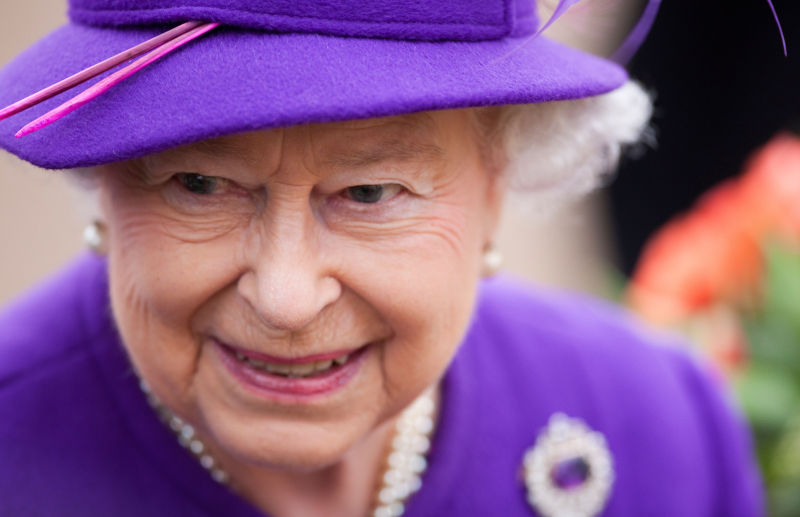Queenly saturation
September 15, 2022
Turn on the television. Move to the screen. Switch on the device if you ever left it off. Queen Elizabeth II may have passed, but she is everywhere in very lively fashion, a spectral manifestation that has utterly controlled large chunks of a transfixed global media system.
It helps that she has captured the media mecca that is the United States, where anything outside its coverage is either, in self-described terms, irrelevant or non-existent. In the centre of the imperium, without a shade of irony, she and the British royal family have exercised a spiritual and celluloid existence almost abnormal in spread. Dramas of aristocratic themes such as Downton Abbey and The Crown captivate. Royal weddings prove to be absorbing spectacles, as do funerals. I was here [in Washington] in 1997 when Princess Diana died, retired British diplomat, Roy Forey, told the Financial Times. At the time you couldnt even walk on this street, it was so full of flowers.
States of class, inequality and hereditary systems of rule are almost titillating, a reminder that the American Revolution was less radical than a revolt begun reluctantly by aristocratic, plantation owning slavers. Indeed, Britains royal institutions, in many ways, were reconstituted and applied to the rough timber of US expansion in the form of a Republic. The batons of empire were changed, but the purpose remained the same.
The Queens death stopped, briefly, trading on Wall Street, with the New York Stock Exchange in solemn observance after 3pm. In sporting terms, the US Open womens semi-final between Ons Jabeur and Caroline Garcia was similarly delayed in respect, though one sports reporter promised tennis fans that the rest of the tournament would continue being broadcast on UK television.
More understandable, if barely, was to see coverage block and stifle all else before in Commonwealth countries such as Australia, itself still subject to British constitutional rule. The Australian constitution, in the wisdom of its drafters, lacks any mention of an independent prime minister or cabinet; the Governor-General remains the British sovereigns representative down under. Reference is made, almost cursorily, to an amorphous Federal Executive Council.
In Australia, Pakistans catastrophic floods, the dangers of radiation spread from the Zaporizhzhia plant, and Ukrainian offensives against Russian forces were filed away in the less relevant news item file. The world, because Britain is, for those in Britain and its historically subject entities, The World, took centre stage, blocking the sun and replacing it with ticker tape announcements about ceremony and prevailing banality.
In the darkest of shades, Graham Smith, CEO of Republic, delivered a pointed reminder that the memorialisation of the Queens passing was itself a misdirection among many, be they about soft power tourism, industrious royals or a firm constitutional defender. Platitude, myth, and sentimentality get in the way of a desperately needed challenge to inherited power and wealth, the significant failings of the royal household and the detrimental impact of monarchy on our nations political life.
Expert commentary, or a tinny impression of it, was offered in such prosaic outlets as The Conversation to explain the phenomenon of grief for a person unrelated, unknown and unmet. This all served to further saturate the coverage, offering splashings and coatings for the phenomenon. So this 24-hour news cycle, and being updated every single step of the queens illness and now death, wrote a solemn academic from the University of New England, can trigger our own lived experiences of loss. We need to be gentle with those varied reactions.
Twitter, despite its screechy quality, at least offered a platform for puzzled individuals wondering if the Australian public broadcaster had been kidnapped by zealous monarchists. The veteran ABC broadcaster and former media advisor Barrie Cassidy sensed that something might have gone a bit awry in the adoration binge. I suspect the ABC has misread its audience. If you want wall to wall royalty you can get it elsewhere in spades. The ABC is better when it offers an alternative to populism.
The Australian satirical news site, The Shovel, summarised things fairly well when it noted how the minutiae of scant encounters with royalty and memory served to make one an authority. An Australian man who briefly chatted to Queen Elizabeth at a function 58 years ago has been asked to reflect on the life and times of the monarch, as part of the ABCs rolling coverage of the royals death. It did not matter that the mans memory was empty of what was said; what mattered was that he was labelled a royal expert, given his intimate relationship with the royal family.
A degree of this is forgivable. Queen Elizabeth was Madame Continuity, Mother Stability, the one who reigned rather than ruled. And the media, adulation circuit is filled with its selected images, its consecrated saints and its pedestal-placed figures. For the moment, its a Queen as protagonist, and for many, The Queen.
You may also be interested in this article from The Conversation.

